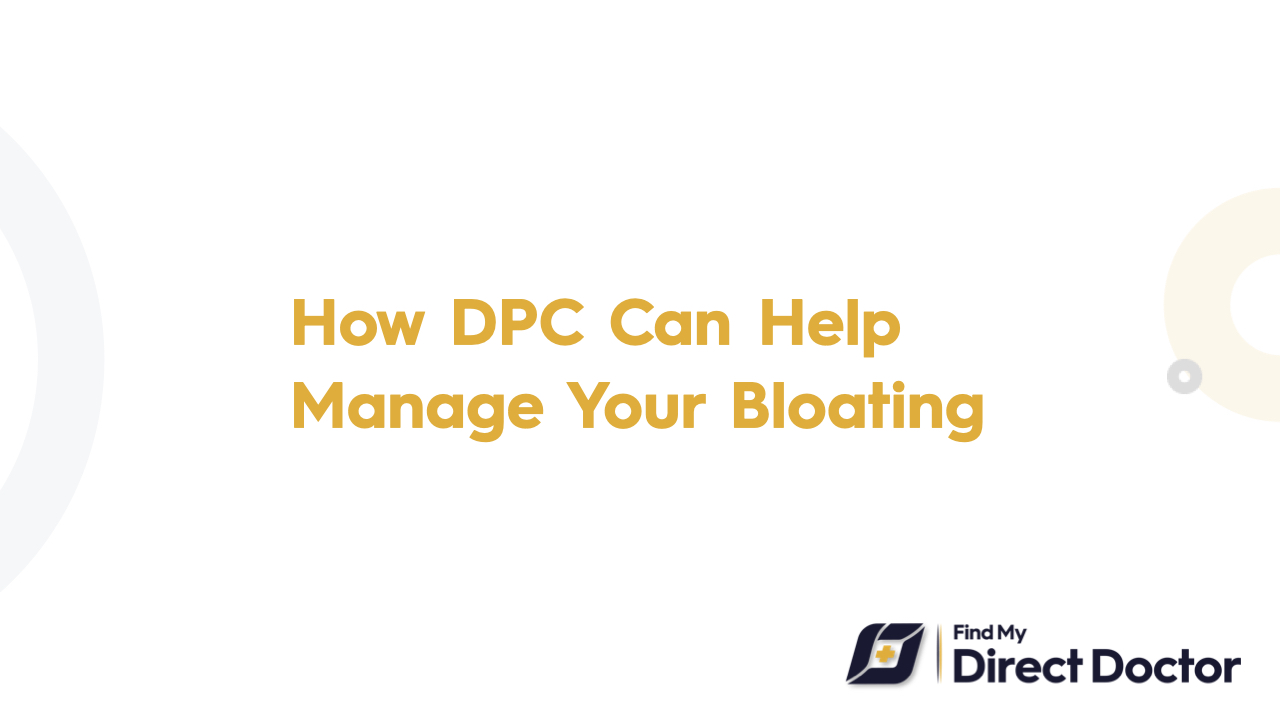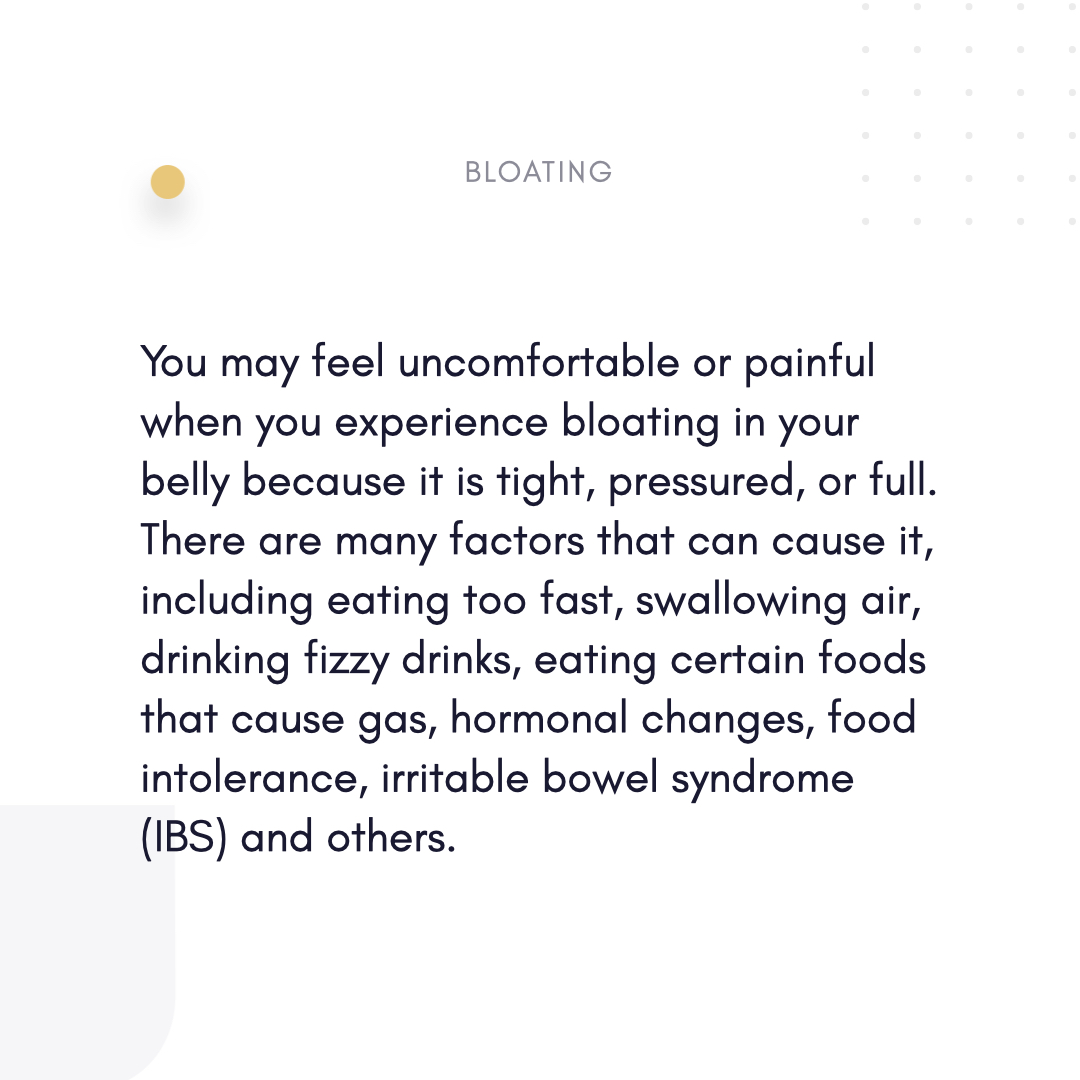Direct Primary Care (DPC) for Bloating: Root-Cause Relief Through Personalized, Holistic Care
Common but complicated symptoms such bloating usually follow from dietary triggers, functional gastrointestinal diseases (FGIDs), stress, or gut microbiome imbalances. While occasional bloating is natural, chronic diseases disrupt daily life and demand a sophisticated, patient-centered approach. Complementing the American Gastroenterological Association's (AGA) biopsychosocial recommendations for managing diarrhea, direct primary care (DPC) provides easily available, continuous care to identify triggers, apply evidence-based strategies, and restore digestive comfort.

Fast Evaluation and Root-Cause Discovery
- One-day visits; quick access to treatment: Treat extreme or sudden bloating to rule out crises (such bowel obstruction) and spot FGIDs including SIBO.
- Food intolerance panels, SIBO breath tests, or in-office stool tests will assist you in identifying among other causes dysbiosis, lactose intolerance, or fructose malabsorption.
All Around Examining
- Review eating habits (e.g., high-FODMAP foods, fiber intake) under professional direction and follow AGA-recommended plans including the low-FODMAP diet to prevent malnutrition.
- Review your prescriptions to find whether NSAIDs, antibiotics, or supplements aggravate bloating.
Professional Harmony
- Cooperation among Gastroenterologists: As necessary, refer for motility testing or endoscopy to guarantee perfect follow-up.
- Meal plans should be developed especially to limit foods that generate gases while preserving nutritional balance.
Individualized Bloating Management DPC
- Food Modifications:
- Methodical elimination is the process of temporally removing triggers (gluten, dairy, cruciferous vegetables) under carefully reintroduction.
- Suggest prebiotics or probiotics, such Bifidobacterium, to help to restore microbial balance.
- All-Around Symptom Relief Therapies for Brain-Gut Axis:
- Using referrals or internal counseling, Cognitive Behavior Therapy (CBT) helps reduce stress and anxiety aggravating bloating.
- Prescribed at low doses, tricyclic antidepressants (TCAs) or SNRIs will help to control gut-brain interaction.
- For motility issues, use prokinetic (such as e.g., erythromycin) or antispasmonics (such as dicyclomine).
- Yoga and mindfulness help one to lower stress-induced bloating by means of diaphragmatic breathing and relaxation techniques.
- Sleeping and drinking enough of water will help digestion by changing your behavior and help to lower fluid retention.
Why DPC Beats Bloating Treatment?
- Accessibility and continuity:
- Text your provider for dietary, medication, or quick flare-up advice.
- Track development with regular follow-ups, changing your strategy as symptoms change.
- Transparency regarding costs:
- Membership usually covers discounted labs—such SIBO breath tests—and in-office visits.
- Try not to stop by ERs. For non-emergencies, DPC helps to control extreme bloating instead of expensive urgent treatment.
- AGA-aligned multimodal treatment:
- Using a biopsychosocial approach, take care of social, psychological, and physical aspects aggravating bloating.
- To enable long-term self-management, teach portion control, food journals, and conscious eating.
The DPC Advantage for Early FGID Intervention in Bloating Patients
- Using quick dietary, probiotic, or neuromodulator support, stop the advance of chronic IBS.
- Bespoke testing: Steer clear of broad recommendations; specifically test for lactose intolerance, SIBO, or fructose malabsorption.
- For complete relief combine dietary plans, stress reduction, and gut-brain therapies.
Final Thoughts
Bloating is a window into your gut health, stress level, and lifestyle—more than just a physical complaint. Combining quick diagnostics, AGA-guided treatments, and ongoing support changes bloating control. DPC provides a consistent partner for patients frustrated by uneven treatment or misdiagnoses seeking underlying causes and bring digestive harmony back.






